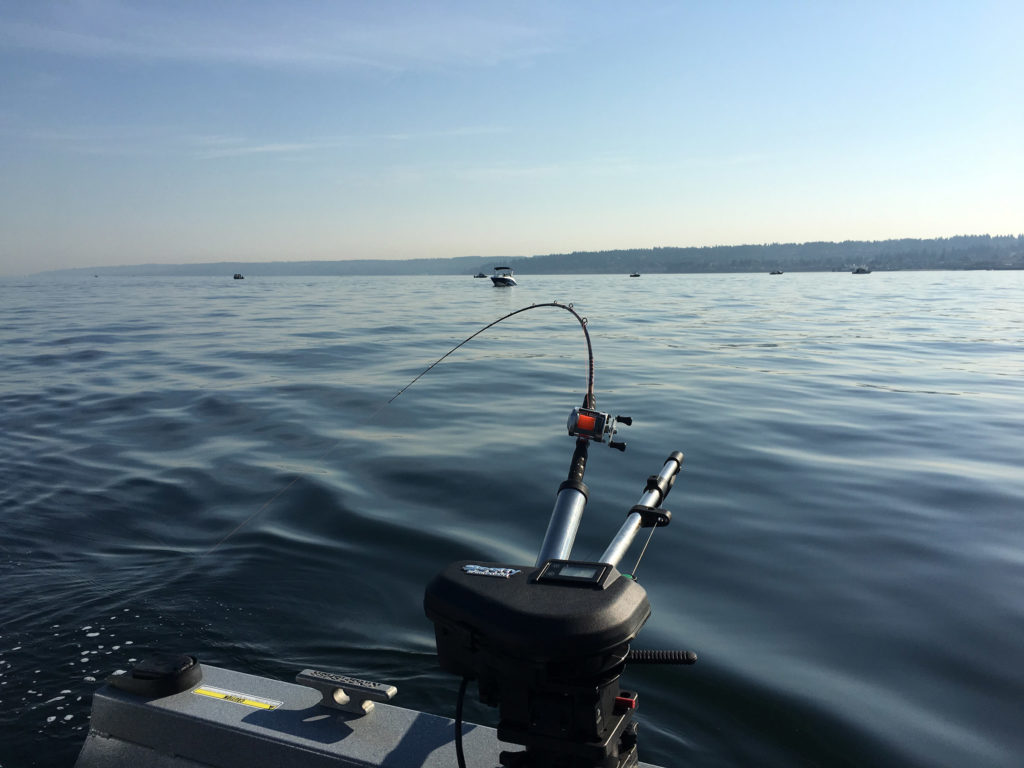
The fog and morning dew covering the landscape is a sign that fall has arrived. For salmon anglers, this means it’s time to start chasing salmon in bays, terminal fishing sites, and deep-water estuaries near the entrances of rivers.
While many anglers think to stow away their fishing gear as fall arrives, October and into the month of November can actually be one of the more productive times out on the water, especially in places like Grays Harbor— located in the backyard of Aberdeen and Westport. State fishery managers are forecasting one of the best coho salmon returns since 2014 to Grays Harbor and its tributaries. This increase in productivity is tied to a higher marine survival rate and improved ocean conditions. The Grays Harbor coho forecast is 198,719 (120,381 are wild and 78,338 are hatchery), up big time from 76,518 (44,843 and 31,675) in 2021.
Good boat launching facilities to access the fishery in Grays Harbor are: the Westport boat ramp, which is best for all sizes of boats; the Johns River boat ramp, a gravelly two-lane site that is suitable for smaller boats; and, the 28th Street boat launch in Hoquiam. The boat ride from the Westport Marina to the main fishing ground in what is known as the “South Channel” takes about 15 minutes to reach the “Goal Post” (a distinct set of rotting wood pilings) located off the Johns River inlet. In this area there is a trough that is 15- to 35-feet deep and runs east and west along the shoreline heading to the Chehalis River mouth. Anglers should start at the Goal Post and head east, ending their troll at Stearns Bluff, a landmark on the southern hillside.
Fishing gear consists of a 6- to 10-ounce lead drop sinker ball to a three-way slip swivel with a triangle Shortbus and/or Brad’s 360 Evolution flashers and a 6- to 8-foot leader attached with a cut-plug herring and/or a Yakima Bait’s Hildebrandt 3.5 Spinner. Once you start trolling, let out 12 to 25 pulls of fishing line, so your bait is spinning just off the sandy bottom or at mid-depth if you mark fish higher up in the water column. Be sure to check you fishing gear often, since the harbor is filled with eel grass. (The best way to avoid eel grass is by fishing during the softer tidal series.) A flood tide is the best time to fish, although some will catch fish right at the low tide change. Since the bite is dictated by tidal exchanges, there’s no need to be on the water first thing in the morning unless that’s when the flood tide occurs.
While the best show happens in the South Channel of Grays Harbor, you can also catch coho in the Lower Chehalis River from the Montesano boat launch to the Lumber Mill, and from the Friends Landing boat launch to a couple miles below the Wynoochee River mouth. (The Chehalis River forecast is a good looking 106,624 wild and 36,854 hatchery coho.) The South Channel fishery (also often referred to as the “East Grays Harbor Fishery”) is open through October 31 with a two salmon daily limit and release all Chinook, and from November 1-30, the daily limit is one salmon and release all Chinook.
Salmon anglers can also expect to see a decent number of migrating coho in several marine areas of Puget Sound. The northeastern region of Whidbey Island (Marine Area 8-1) is open through October 9 for coho with a two salmon daily limit (release all Chinook and chum). Central Puget Sound (Marine Area 10) and south-central Puget Sound (Area 11) are open for all coho through October 31. Hood Canal (Area 12) is also open for coho through November 30, and anglers can also target chum salmon. Southern Puget Sound (Area 13) is open year-round for salmon fishing and areas around Peale Passage, Dana Passage, and Hartstene Island should be good for hatchery coho this month. Anglers should check the WDFW website for any emergency changes to the season dates.
Next month we’ll dive into Puget Sound winter Dungeness crab fishing options, an announcement on that front should be out soon. I’ll see you on the water very soon!